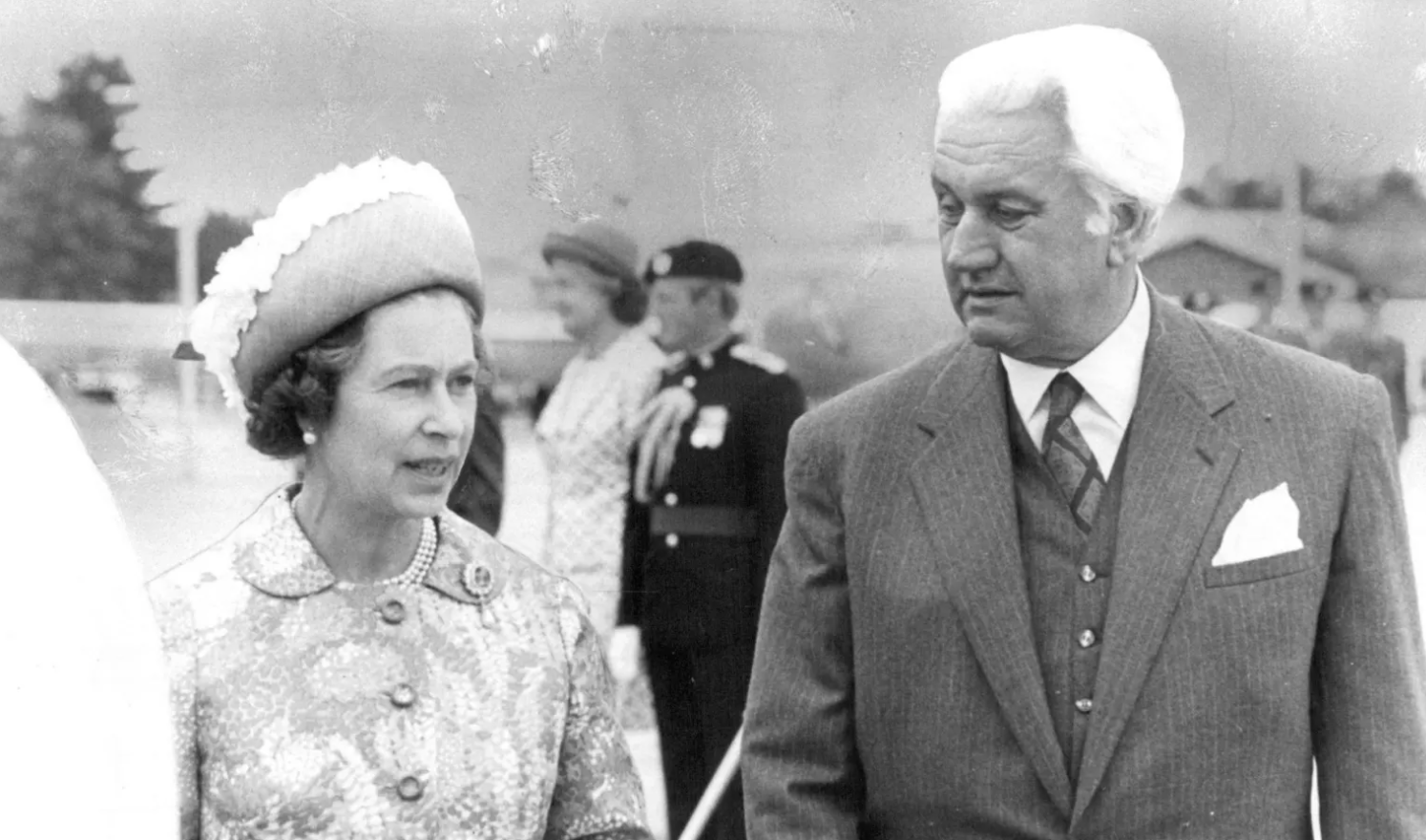Continuing a family tradition, Professor Jenny Hocking’s success in the High Court last Friday is a significant victory. It releases control over a vital part of Australia’s history from the Queen’s veto and places it in the hands of Australian institutions.
Following her initial request for access to “the Palace letters” just over four years ago, Hocking finally had the highest court in Australia determine that the contents of a sealed package, deposited with the National Archives and containing contemporaneous copies of correspondence sent between Sir John Kerr and Her Majesty the Queen of Australia, are “records” that are “the property of a Commonwealth Institution” and are subject to section 31 of the Archives Act.
This legal question – whether “private and confidential” correspondence between the Queen and a governor-general (during the term he held that office and about issues relevant to his role) is “property of a Commonwealth Institution” – is made remarkable by Hocking’s extraordinary struggle to make the Palace letters Australian letters, and to rid them of the fiction they are privately owned and controlled.
(Photo: Prof Jenny Hocking: The Wellington Times)
 It was a fiction set in motion by David Fricker, the Director-General of the National Archives and a former Chief Information Officer at ASIO who rejected Hocking’s request four years ago, arguing the contents of the file were not “Commonwealth records.” His rejection was upheld by the lower courts until the High Court stepped in with a 6-1 decision in Hocking’s favour.
It was a fiction set in motion by David Fricker, the Director-General of the National Archives and a former Chief Information Officer at ASIO who rejected Hocking’s request four years ago, arguing the contents of the file were not “Commonwealth records.” His rejection was upheld by the lower courts until the High Court stepped in with a 6-1 decision in Hocking’s favour.
The National Archives had restricted release around the terms the depositor had placed on them, and indeed had further restricted access back in 1991 when the Queen instructed that her private secretary and the secretary of the Governor-General should also hold a veto over their release. As Hocking has argued, such a veto would have profound consequences for an independent nation trying to understand its own history.
Yet that was not the central legal concern of the High Court. The detailed analysis revolves around whether the material constituted “Commonwealth records” for the purpose of the Archives Act. The outcome is significant and remarkable because it alters whether the Palace letters can, in principle, be accessed within the “open access” period, 31 years after the year of the document’s creation.
This is a form of access that has seen many significant political stories revealed, enhancing Australia’s understanding of its political and social history.
Indeed, over time there are more stories to be told around this High Court case. One is that Hocking herself, and indeed her family, have contributed significantly to the nation’s democratic and legal history.
Jenny’s mother Barbara Hocking was a trailblazing lawyer, who began her Arts/Law degree at Melbourne University in 1947 yet did not graduate until 1962 after taking a break to have her four children.
As Jenny and her sister have written about Barbara, returning to university with four children under the age of 10 showed their mother’s determination: “If it was unusual for a woman to be studying law in the 1940s, it was even more unusual for a woman with four young children to be finishing her law degree more than 10 years later.” In 1982 Barbara Hocking became the first barrister briefed in the Mabo case, which would finally right the legal fiction of “terra nullius”. Later the High Court would recognise native title in common law.
The Palace letters High Court case would not have been determined without Jenny Hocking’s commitment as an academic to pursuing this matter through the courts – which required crowdfunding, pro bono legal support in the event she was not successful,
The Palace letters High Court case would not have been determined without Jenny Hocking’s commitment as an academic to pursuing this matter through the courts – which required crowdfunding, pro bono legal support in the event she was not successful, and other forms of contribution. If the decision had been otherwise, Hocking would have been liable for the National Archive’s significant legal costs in defending its decision.
Access to justice, even in keeping government accountable for acting lawfully, is not free. Finding the right balance in a democracy needs greater attention paid to who has the power and wealth
Access to justice, even in keeping government accountable for acting lawfully, is not free. Finding the right balance in a democracy needs greater attention paid to who has the power and wealth to access the courts and the ability to unearth the legal stories around our democratic system.
Another story flowing from this decision comes from Justice Edelman’s comments, important for other lurking citizenship questions in Australia still unresolved. In discussing the meaning of the term Commonwealth, for the purposes of the meaning of a “Commonwealth institution” governed by the Archives Act, Edelman highlighted how the constitution “contains inherent limits upon the extent to which legislatures can fracture the membership of the political community of the body politic such as by exclusion of those people who were, and remain, necessary members of the body politic” – referencing the recent High Court decision on Indigenous Australians not being aliens.
Edelman warned against the “imposition of unjustified restraints upon the participation by the people in the operation of the body politic”. These powerful statements around overreach in areas of legislation impacting on democratic membership in Australia spread beyond the Archives Act.
The High Court did not release the Palace letters. As a matter of law, it ordered the Director-General to reconsider Hocking’s request for access to the correspondence, treating them as Commonwealth records. According to section 31 of the act, this means the National Archives must release the records unless they are “exempt”; a term defined under section 33 of the act. This includes Commonwealth records that could cause damage to the security, defence or international relations of the Commonwealth; or information or matters the disclosure of which under the act would constitute a breach of confidence; amongst other considerations.
Fricker will now have to determine whether the contents of the sealed package, of which Hocking has been told there are 211 letters, fall under any of those exemptions. Last financial year the National Archives wholly released 96 per cent of records requested, partially released 3 per cent, and completely withheld only 1 per cent. The next story in this saga will be whether some, or any, of the Palace letters fall within that 1 or 3 per cent category. If they do, then stay tuned for another legal challenge, first through the Administrative Appeals Tribunal and then on through the courts.
The Palace letters may ultimately return to the High Court for another historic decision on our right to access Australia’s history.
This article is also published in The Canberra Times. Professor Kim Rubenstein is a co-director of the 50/50 by 2030 Foundation at the University of Canberra, and a co-editor of The Court as Archive (ANU Press, 2019).
For more on Barbara Hocking, see her entry in Trailblazing Women: Australian Women Lawyers as Active Citizens
Kim Rubenstein is a Professor in the Faculty of Business Government and Law at the University of Canberra, which has supported the production of the new podcast series It’s not just the vibe, It’s the Constitution. She is a Fellow of the Australian Academy of Law and the Academy of Social Sciences in Australia.





